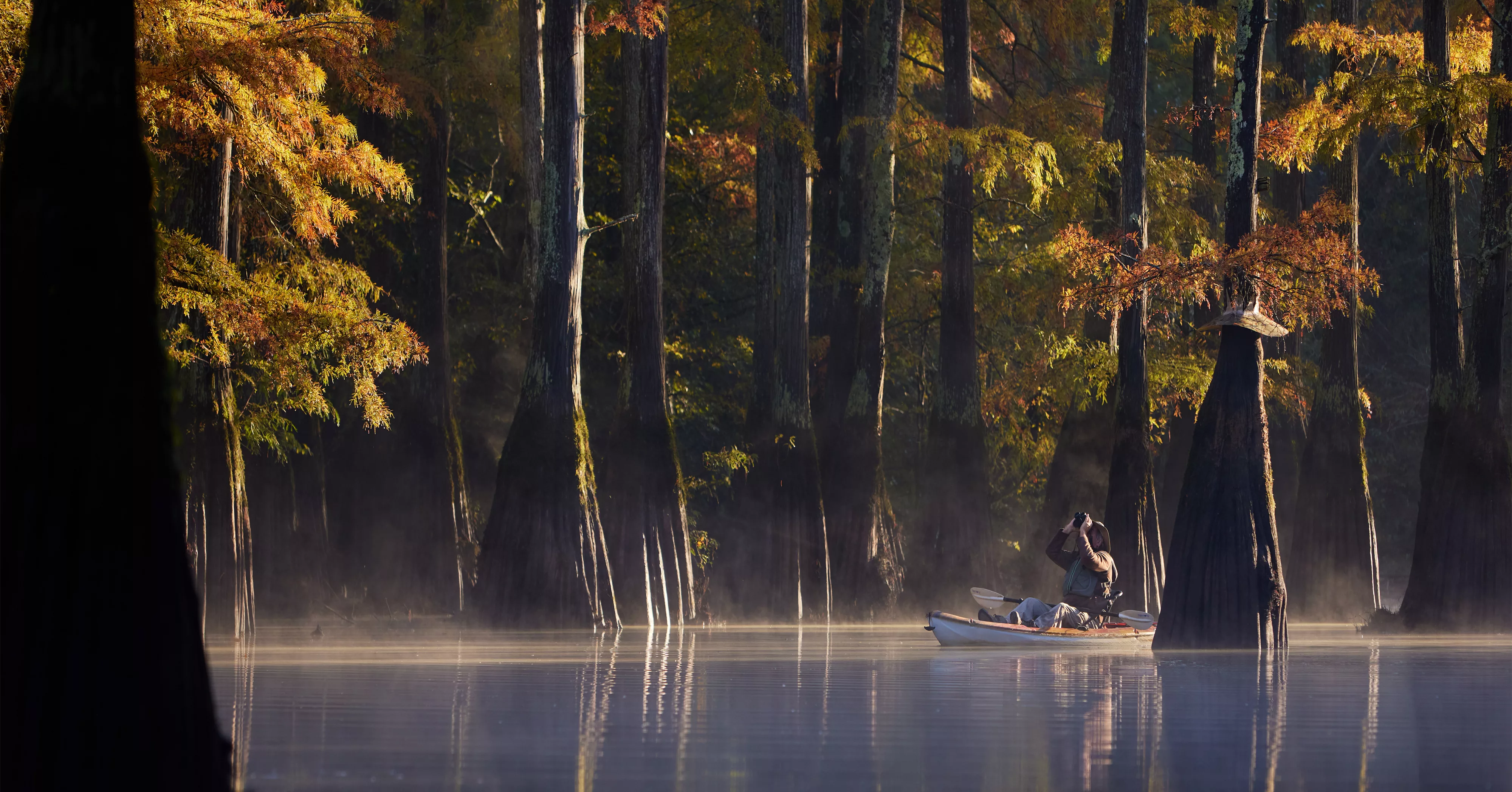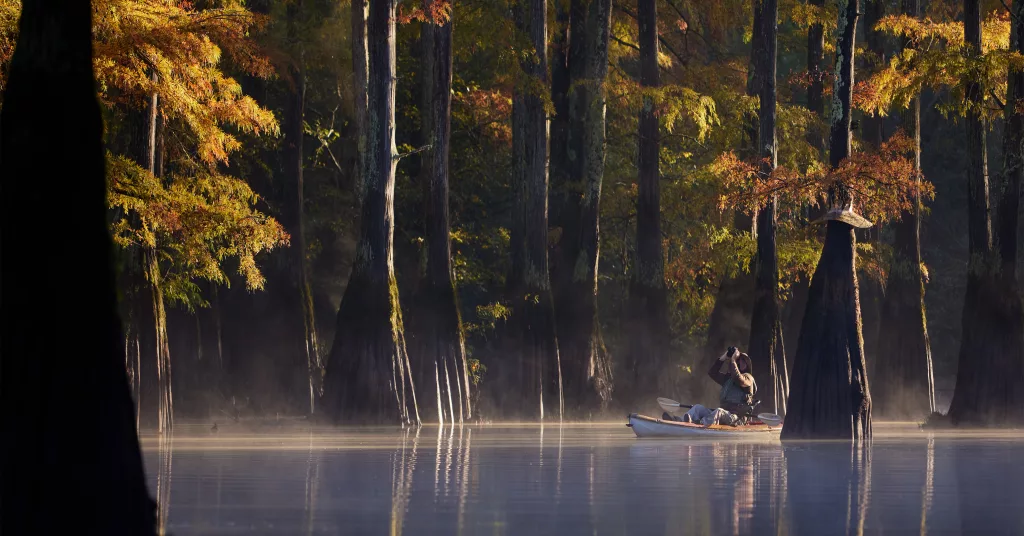
Photo courtesy of The West Tennessee Delta Heritage Center: CAPTION: Kayaking and bird watching are just a couple of the low impact recreation opportunities along the Hatchie River. The newly formed Hatchie River Conservancy will focus on protecting the scenic beauty and natural integrity of this scenic river that stretches through six West Tennessee counties.
Brownsville — The Hatchie River Conservancy (HRC), a new nonprofit organization, has been created by a group of local citizens to protect the Hatchie River, the only remaining unchanneled river in the lower Mississippi river basin. The aim of the HRC is to protect the scenic beauty and natural integrity of this ancient, uniquely wild river and the surrounding ecosystem of which it is a part.
The Hatchie River begins in north Mississippi just south of Pocahontas, TN, and travels over two hundred miles through six counties in West Tennessee: McNairy, Hardeman, Madison, Haywood, Tipton, and Lauderdale, before emptying into the Mississippi River north of Memphis.
In 1970 the State of Tennessee legislature granted the Hatchie “Scenic River” status. The Nature Conservancy, an organization which does conservation work around the world, identified the Hatchie River as one of the “last great places on the planet.”
The Hatchie supports an incredible diversity of plant and animal species in and along the river. Scientific surveys have identified over 100 species of fish including more species of catfish than any other river in the United States. There are at least 35 species of mussels, 60 species of butterflies and dragonflies, and 250 species of birds. River otter, beaver, deer, bobcat, raccoons, opossums, and many other mammals make their home here, too. The 200,000 contiguous acres of bottomland hardwood forest in the Hatchie watershed is the most extensive in Tennessee and provides essential habitat for migratory animals and year-round residents.
The HRC recognizes that it would be naïve to assume that the Hatchie will always remain as it is without attention and care. Much-needed economic development along the watershed will bring both opportunities and challenges, and if we are intentional, the Hatchie and this rich, biodiverse ecosystem can survive and thrive.
“Change is inevitable, and change is happening fast in the Hatchie watershed and somebody has to look out for the river,” said HRC Executive Director Bob Ford. “We want the HRC to be the eyes and ears of the Hatchie and to make sure conservation of the river is part of every decision.” Ford also added, “We also want to share stories about the river, conservation successes, and problem solving solutions to possible threats to the river.”
The HRC will promote the conservation and responsible stewardship of land and water by providing technical assistance, scientific study, and education. The HRC understands that, to paraphrase the naturalist David Attenborough, people will protect things they care about and to care about something they have to experience.
With that in mind, the HRC will also promote low impact recreation along the Hatchie: hunting, fishing, kayaking / canoeing, wildlife observation and photography. The public is invited to support the efforts of the HRC by visiting the website hatchieriver.org to learn about this incredible natural resource and to make a tax-deductible contribution.








